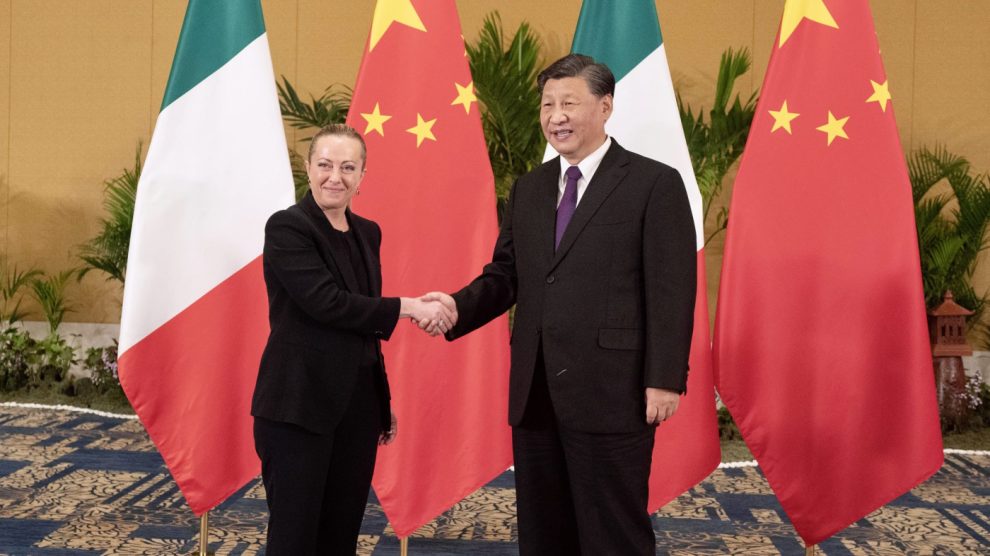Wang Lutong is in Rome. The Chinese diplomat, who’s head of the European Affairs Department of the Chinese Foreign Ministry, was in Rome on Friday, sources say. He met with Deputy Foreign Minister Edmondo Cirielli and several officials from the Italian Ministry of Foreign Affairs.
- Talks centred on the countries’ partnership and the Belt and Road Initiative, as well as Foreign Minister Antonio Tajani, Prime Minister Giorgia Meloni and President Sergio Mattarella’s future visits to Beijing.
- The Silk Road dossier was also on the table when Wang Yi, head of the Chinese Communist Party’s diplomacy, met with Minister Tajani and President Mattarella in February in Rome.
All eyes on the BRI. Mr Wang’s visit comes at a crucial time, with Italy dealing with the upcoming renewal of the BRI Memorandum of Understanding. It’s also two weeks until the G-7 summit in Hiroshima, Japan, where Italy’s allies – starting with the United States – will surely ask for the Italian government’s decision on the matter.
- Essentially, the MoU (signed in 2019) is set to auto-renew in 2024 unless either Rome or Beijing declare they’re out by the end of 2023.
- And Italy being the only G-7 country in the BRI hardly matches its Atlanticist positioning, as well as G-7 efforts to build an alternative to the Chinese project.
Beijing’s push… China, on its part, is playing the economic card to convince Italy to stay in the deal, although the promised trade benefits failed to materialise. But given Beijing’s potential retaliation, Rome might decide that the costs would outweigh the benefits if it were to exit the BRI – which is not legally binding, another point that Chinese diplomats are making to convince the government not to drop the BRI.
- In parallel, some within the MFA believe a viable solution would be dropping the BRI and signing a commercial agreement, free from the Silk Road’s political implications, to avoid a harsh reaction from China.
- However, that solution could “leave everyone unhappy” and repeat the diplomatic mistakes of the past, commented Alexander Alden, Non-Resident Senior Fellow of the Atlantic Council, in an interview with our sister site.
… and Rome’s direction. The BRI decision comes as PM Meloni’s government is working to give Italy a strategic, fully Euro-Atlantic foreign policy positioning in continuity with her predecessor, Mario Draghi. Recently, FM Tajani stressed that Rome has aligned with the EU and NATO vis a vis Taiwan, and Agriculture Minister Francesco Lollobrigida (a close ally of the PM) assured that Italy would coordinate with Western institutions on the matter.
- Dropping the BRI would also allow Italy to stand out within the EU, where the two other biggest economies – namely France and Germany – often fall back on geopolitical ambiguity to curry Beijing’s favour and push their own economic interest.
- Also, PM Meloni’s recent foreign policy moves – which include strengthening ties with fellow G-7 members Japan and the United Kingdom, as well as India – indicate she’s well aware of the geopolitical balances and opportunities outside of the Silk Road.
Shifting tones. All this has been shining through in the meetings between Italian and Chinese diplomats. Other delegations of CCP officials have been visiting Rome in recent weeks, and Italian personnel who also participated in the 2019 talks – meeting with central figures – told Decode39 of different, harsher tones on many issues.
- One such dossier is Taiwan, which Beijing still deems a breakaway province and with which Rome is strengthening relations. And Chinese diplomats reserve little space for the war in Ukraine, which China calls a “crisis” without acknowledging Russia’s aggression.




